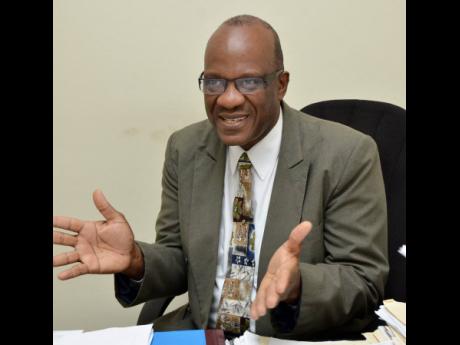300 more lost - Mentally ill inmates languish in prisons, casualties of state forgetfulness
More than 300 mentally ill people are serving indefinite prison sentences or have simply fallen off the court list, many languishing in limbo for decades.
But Hugh Faulkner, executive director of the Legal Aid Council, said his organisation has launched an investigation into the ‘lost’ inmates in a bid to resurrect the long-dead cases and set free those who should never have behind bars for so long.
The revelation comes in the wake of a report in The Gleaner yesterday that ex-cop Walter Blackstock, 61, had spent some 31 years behind bars without standing trial and having not entered a guilty plea because he was deemed unfit to plead when he was arrested on a murder charge in 1987.
Blackstock was on Tuesday granted bail when he appeared in the Home Circuit Court in downtown Kingston.
In an interview with The Gleaner yesterday, Faulkner said that an audit of the correctional facilities across the island revealed that up to January 2018, there were 313 mentally ill people incarcerated. He said that number is still over the 300 mark.
To tackle the problem, he said the council last year embarked on training 30 attorneys-at-law to examine, manage, and resolve these cases.
Already, this initiative has borne fruit with the January release of Leslie Spalding, a mentally ill man who spent 23 years in prison.
He was arrested and charged in 1995 with assault occasioning bodily harm but was never convicted or sentenced.
There was a similar case in 2015 involving Delroy McIntosh, a mentally ill man who remained in prison for 25 years after being arrested for possession of a ganja spliff.
At the time, then Justice Minister Mark Golding vowed to implement measures that would prevent persons from being lost in the system.
“What was proposed then was that there was going to be proper monitoring of them (mentally ill inmates) through the Office of the Chief Justice, working in tandem with the psychiatric department in the Ministry of Health, to ensure that they were regularly assessed for their ability to plead and brought before the court as soon as we established that they were of sound mind and could plead,” Golding, who is now the opposition spokesman on finance and planning, told The Gleaner yesterday.
Golding said Blackstock, who was found fit to plead on three occasions since his 1987 arrest, was a casualty of systemic inefficiency and a communication deficit. The Office of the Director of Public Prosecutions was never notified of this development by the Department of Correctional Services.
Justice Minister Delroy Chuck, who took over the portfolio in 2016 and under whose ministry the Legal Aid Council falls, declared that his ministry is not responsible for getting mentally ill people back to court, pointing fingers elsewhere.
“It is in the MNS (Ministry of National Security) or the correctional services that must be able to say that he’s able to stand trial … . It comes under the Department of Correctional Services,” Chuck said yesterday in an interview with The Gleaner.
When The Gleaner contacted National Security Minister Dr Horace Chang, he said he was not aware of the issue but indicated that he did not believe that mentally ill people should be incarcerated.
“Mentally ill people in prison is something we are dealing with from a point of view of returning them to where they should be – the hospital – and we are working with the Ministry of Health to get the Mental Health Act amended. I don’t even know what the procedure, is strictly speaking, but, unfortunately, they lock up the mentally ill people, which is a crazy thing to do,” Chang said.

